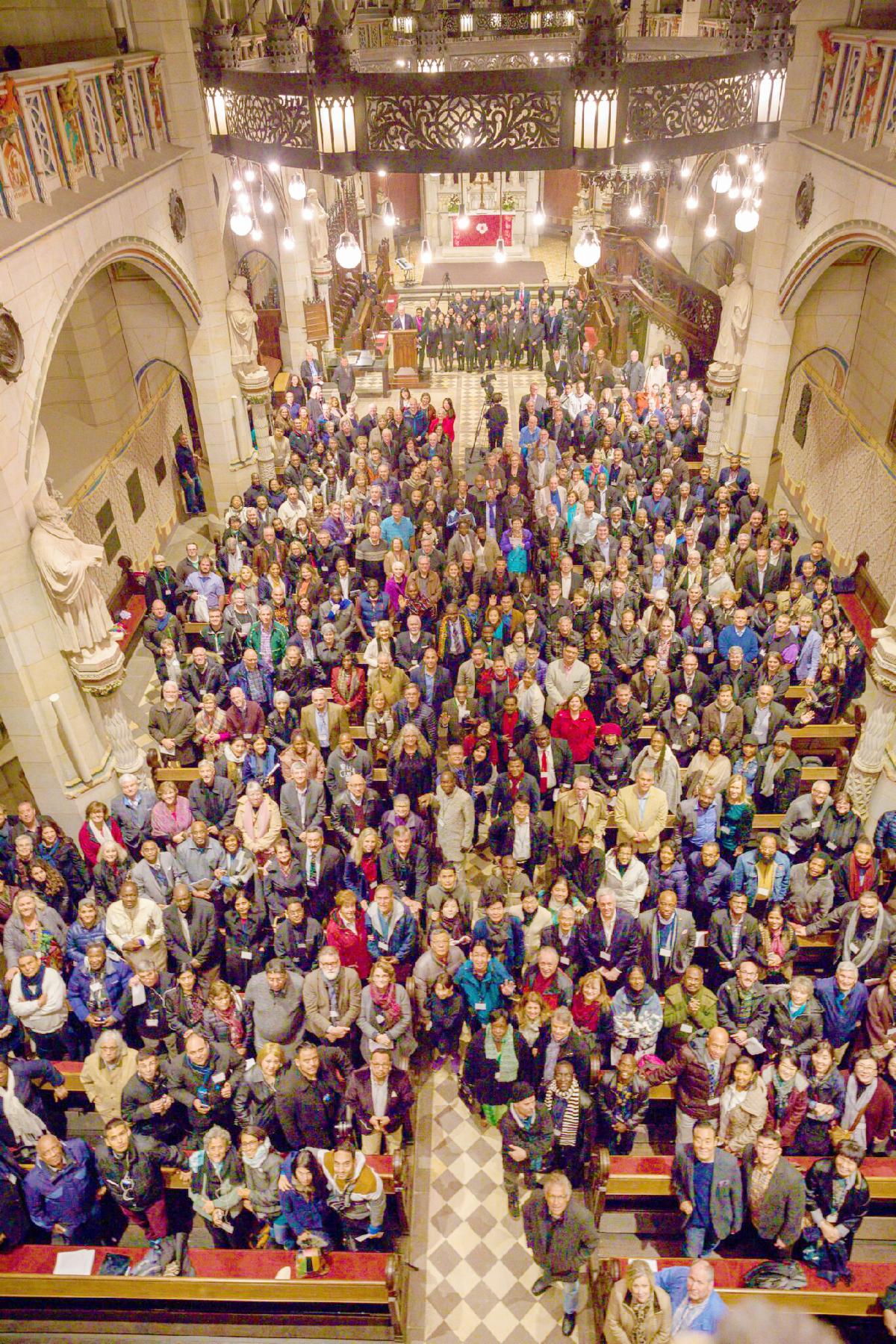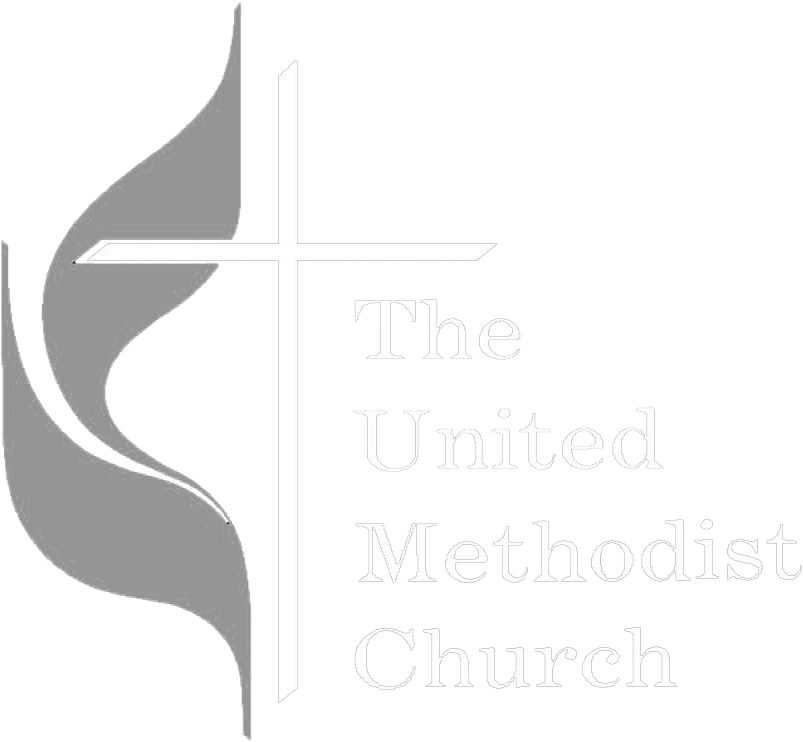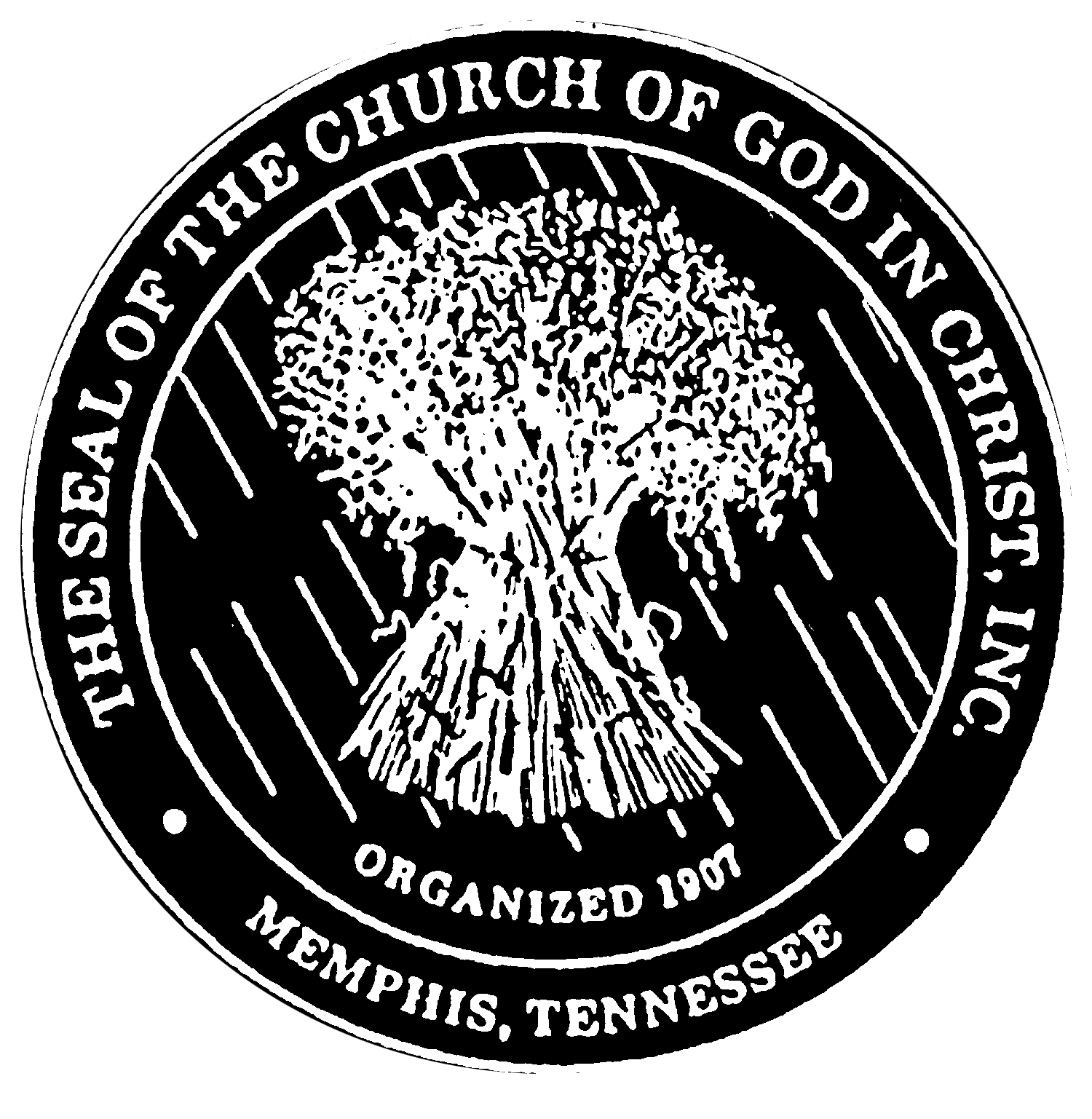The Builder Of The Roman Road: Roman Series #1

Dr. Martin Luther was a Roman monk. He was a theologian—a professor in a school. He was desperately trying to learn how to be right with God. There came a time he took a journey to Rome and climbed on his knees up Pilate’s stairs, where supposedly the blood of Jesus Christ was dropped as you go up.
 Dr. Luther stopped and kissed the blood on every one of those steps. But when he came to the top of the stairs, he realized he was no more right with God that he had been. Yet it was through the book of Romans that Martin Luther studied, and he came to Romans 1:17: “The just shall live by faith.” With those words he was saved, and the result was the Reformation, which shook the entire world.
Dr. Luther stopped and kissed the blood on every one of those steps. But when he came to the top of the stairs, he realized he was no more right with God that he had been. Yet it was through the book of Romans that Martin Luther studied, and he came to Romans 1:17: “The just shall live by faith.” With those words he was saved, and the result was the Reformation, which shook the entire world.
Dr. John Wesley came as a missionary to the Indians in St. Simons Island, Georgia. On his way back from his fruitless missionary journey he came in contact with a group of Moravian missionaries. They had a relationship with God and a faith in Jesus Christ which was foreign to John Wesley. John Wesley later wrote, “I went to Georgia to convert the Indians, but who will convert me?”
One evening Dr. Wesley went into a little chapel at Aldersgate. He heard Luther’s introduction to Romans being read and he said, “I felt my heart strangely warmed.” The result was he came to know Jesus Christ as his Savior.
I really believe the Church can experience the greatest revival we have ever known if the truths of the book of Romans grabs hold of our hearts. The book of Romans has both a simplicity and complexity. There are truths in the book of Romans that are far more profound than our human minds can understand. Yet there is nourishment that can feed our souls and cause us to grow in the Lord.
Major cities have massive lines with massive electrical power coming through them. If the power that is found in those lines was suddenly dumped into your home, your home would explode with fire. Transformers can be seen in neighborhoods. The purpose of the transformer is to take the high voltage power and bring it down to make it usable for your home.
As you read this book, you will see it as a transformer, taking the high voltage power of Romans and breaking it down so we can walk out of our homes and live a better Christian life tomorrow and be more faithful to the Lord Jesus than we have ever been before. Someone has said that the book of Romans is a book that tells us how to be a Christian without being religious.
The book of Romans can be divided into the five major sections of: 1) Sin (chapters 1-3); 2) Salvation (chapters 3-5); 3) Sanctification (chapters 6-8); Success (chapters 9-11); and Service (chapters 12-16). Sin—the mess we are in. Salvation—what God has done to get us out of the mess. Sanctification—how to be what God has saved us to be. Success—What potential we have in Christ. Service—how to do what God has saved us to do.
In Romans 1:1, Paul articulates three statements. In those three statements we learn three very important truths about this man.
I. Our Indescribable Master
 He begins by saying, “Paul, a servant of Jesus Christ.” Paul was born in the city of Tarsus to Jewish parents. He received his secular education at the University of Tarsus. For his religious training he was carried to Jerusalem. There he was taught by the great Jewish teacher, Gamaliel.
He begins by saying, “Paul, a servant of Jesus Christ.” Paul was born in the city of Tarsus to Jewish parents. He received his secular education at the University of Tarsus. For his religious training he was carried to Jerusalem. There he was taught by the great Jewish teacher, Gamaliel.
He was a Pharisee of the Pharisees. That means the strictest group of the Jewish people. He had an intense hatred for Jesus Christ and everybody who named the name of Jesus. He was the most unlikely person to become a follower of Jesus Christ. Yet the Bible says one day he was on the Damascus Road, on his way to persecute the followers of Jesus. The Bible says he saw a light, brighter than the sun. He was smitten into the dust. He met Jesus Christ face-to-face and he was gloriously converted, and Jesus Christ became the Master of his life.
Everybody has a master. Every Christian has a Master. All people have a master. But when you come to know the Lord Jesus Christ, your Master saves you. You are “a servant of Jesus Christ.” The word “servant” literally means “slave.” People in that day understood what that meant. In that day a bondslave was somebody who was owned by a master. It has been estimated there were six million bondslaves in the Roman Empire at that time. So they knew immediately what Paul meant when he said he was a bondslave. If a person said, “I am a slave,” immediately the question would be asked, “Who is your master?”
The truth of the matter is, all of us have a master. Whether you are saved or whether you are lost, you have a master. The Lord Jesus in John 8:34 said, “Whosoever committeth sin is the slave of sin.” Sin is a terrible bondage. All sin is addictive. If you do not know Jesus Christ as your Savior, you are not free—you are a slave of sin, “Whosoever committeth sin is the slave of sin.” But the Bible says that Jesus Christ loved us enough to pay the price for our redemption from sin.
The Bible says in 1 Corinthians 6:19,20, “You are not your own; you are bought with a price.” One day Jesus went to Calvary’s cross, and He paid the price with His own blood for your sins and my sins. When we repent of our sins and by faith receive into our hearts and lives what Jesus Christ did for us at the cross, the Bible says we are set free from the bondage of sin.
A lot of people choose not to follow Christ because they believe, “Preacher, I’d like to come to Christ, but I’m just afraid I can’t live it.” My response is, “I can’t live it either.” You don’t come to Jesus Christ because you can live it; you come to Jesus Christ because He can save you and He can give you the power to live it. He can give you power to overcome that sin problem in your life. When you receive Jesus as your Savior, you also receive Him as your Lord and you are now a slave of Jesus Christ.
In the Old Testament there is a beautiful picture about all of this. In those days if a person was a slave in the Hebrew economy, every seven years those slaves were to be set free. Sometimes a slave would have an unusually kind and good master. He would come to the time when he was to be set free from his slavery, but he had it made. He had it good. His master was taking good care of him. He was having all his needs provided. So the slave would come and say, “I love my master, and I don’t want to be free.” So the master would take the slave over to the door and he would take an instrument known as an awl, kind of like a pick, and he would drive a hole into the lobe of the ear. This would be the sign that the slave had permanently given himself into slavery to his kind and benevolent master.
The above story is what it means to know Jesus as your Savior. I love my Master; I will not go out free. He is my Redeemer; He paid the price for me.
Do you have a master today? Is His name Jesus? Paul’s Master—a servant of Jesus Christ.
II. Our Inspirational Mission
 Paul was “called to be an apostle.” The order of the words is very important. You cannot be called to be an apostle until first of all you are a slave of Jesus Christ.
Paul was “called to be an apostle.” The order of the words is very important. You cannot be called to be an apostle until first of all you are a slave of Jesus Christ.
You cannot serve the Lord until first of all you have come to the Lord in a saving experience. Paul says, “I have a mission: I have been called an apostle.” As you study the Bible, you will find there are two great calls in the Bible. The first call is the call to salvation. We read in Romans 1:6, “Among whom ye also are the called of Jesus.” That’s the call of salvation. God calls people unto salvation.
Listen to the call of God in Proverbs 1:24. God says, “I have called and you have refused. I have stretched out my hand, and no man regarded it.” Then we read in Proverbs 1:28, “Then shall they call upon me, but I will not answer.”
We better respond to Jesus while He’s calling. You better answer the call while the call is here. If there is any desire in your heart to know Christ, you need to come to Christ. If there is any softness, if there is any warmth in your heart toward Jesus Christ, you need to come to Jesus Christ right away. There is the call of salvation.
Secondly, there is the call of service. Paul is saying, “I am called an apostle.” I believe in a call. I believe God calls people to serve Him. I believe God calls preachers to preach. I believe God calls Sunday school teachers to teach Sunday school. I believe God calls people to serve Him. I know a preacher who was really having a battle.
Paul says, “I am called an apostle.” In those days the word “apostle” was used in two ways. Sometimes the word was used in a restricted sense. It was used to refer to the original twelve who had been set apart by the Lord in order to witness for Him and to give us the New Testament. One of the requirements was that they had to have been an eyewitness to the resurrection of Jesus.
The apostle Paul came along, and in the eleventh chapter of this book of Romans he says, “I am apostle to the Gentiles.” The Lord Jesus revealed Himself to Paul, so in the restricted sense Paul himself also was an apostle of Jesus Christ.
But sometimes the word is used in a wider sense. Literally, the word “apostle” means to send forth. It means one who has been sent on a mission. It means one who has been given an assignment by the King of kings and the Lord of lords.
You and I have been called, we have been sent, we are on a mission. Our responsibility is to represent Jesus Christ in this world. We are God’s sent ones. We are God’s missionaries. Ambassador to be of realms beyond the sea, I’m here on business for my King. That does something to your life when you realize that Jesus Christ has a purpose for you, when you realize that you have a mission, a reason for existence, it gives a dignity to your life.
Multitudes of people don’t know who they are. They don’t know where they are going and they don’t know why they are here. The reason suicide has become a major problem among young people is that many young people really don’t have any sense of purpose in life. Life doesn’t mean anything. Life has no reason for existence. But if you have received the Lord Jesus Christ as your personal Savior, you are important to Jesus Christ. You have a mission, you have a purpose for existence.
III. Our Inspirational Message
 His message—“separated unto the gospel of God.” The word “separated” here is one of the beautiful words in the Bible. When we come to the Lord Jesus Christ, receive Him as our Master, and accept the mission which He has given to us, He has now separated us unto Himself.
His message—“separated unto the gospel of God.” The word “separated” here is one of the beautiful words in the Bible. When we come to the Lord Jesus Christ, receive Him as our Master, and accept the mission which He has given to us, He has now separated us unto Himself.
There is a negative aspect to separation, in that if we belong to Jesus Christ, we are to be separated from everything that is not like the Lord Jesus Christ. God calls us to be different.
If there is no difference in the life of a professing Christian from that of those who are not Christians, then what’s it all about? We read, “If any man be in Christ, he is a new creation, old things are passed away, behold all things are become new.”
We are separated from all that’s bad, but the positive is the best thing. We are separated unto all that’s good. We are separated unto the gospel of the Lord. We are separated unto Jesus, and we are separated unto His gospel.
We have a message to deliver. The word “separate” has our English word “horizon” in it. There is a preposition in front of it and then the word “horizon.” Paul says when he came to the Lord Jesus Christ, he was taken off his horizon. He was given a new center in his life. Therefore, he had a new horizon.
Your horizon is determined by what the center is. You may live in a certain section of your city. You may live on the south side. You may live on the west side. Wherever you live, that is where your center is. Most people live in a circle of life, and everything revolves around that particular circle.
However, if you go to a nearby airport to board a plane and take off, you have a new center, and you will see your city or town like you’ve never seen it in all of your life. At that moment, your horizon will be far wider, far greater, than you’ve ever imagined it.
That’s exactly what Jesus Christ does with a person’s life. People are just living in their narrow circle of existence and then they come to know Jesus. And Jesus Christ becomes the center of their life. They now get interested in higher things and in holier things and in heavenlier things. They are now seated with Jesus Christ in the heavenlies. Your life takes on a brand-new horizon. You see things that you’ve never seen before.
There was an old man who lived all his life at the foot of a mountain. Toward the end of his life he decided one day he would climb that mountain. He climbed it, and when he got to the top he saw a horizon he had never seen before. He burst into tears and said, “Just to think, I lived all my life and I almost missed it.”
God has a new horizon for every person. God wants to separate us unto the gospel of God and the gospel of His Son. Paul’s message was “separated unto the gospel.” “Gospel” means good news. Aren’t you glad we have some good news? The news of this old world is bad and it’s getting worse.
A lady called a cable television repairman to come over and fix her television. When he got there the evening news was on. He asked her, “What’s wrong with your TV?” He’d checked it and couldn’t find anything.
She said, “Look at the face of the newscaster. Look how narrow his face is.” The television repairman looked at it and said, “Ma’am, if you had to report what he has to report, you would have a long face too.” We are living in a world filled with bad news.
I have some good news for you. The Creator of this universe said, “I have a personal message for you.” The very One that you and I have mistreated. The very One that you and I have neglected, says, “I have some good news for you.” When Jesus Christ died on the cross, the cross was God’s billboard, announcing before all roads in this life, “I have some good news for you. I love you and I’ll forgive you of your sins.” Good news from God.
What’s the substance of the good news? The good news is Christ died for our sins according to the Scriptures, that He was buried, and the third day He arose again from the dead. However, if you wanted to tell someone about that good news and how the message from God can be personal in their life, how would you go about it? What would you say?
The Roman Road helps us to communicate the gospel to everyone. Romans 3:23, “For all have sinned and come short of the glory of God.” That means every one of us has sinned. There is a simple statement of truth about every one of us in the world. We all have sinned and come short of the glory of God.
In Romans 6:23 we read, “For the wages of sin is death, but the gift of God is eternal life through Jesus Christ our Lord.” The difference between wages and a gift is this. Wages is something we work for. We work at a job and earn our wages. We’ll deserve what we get. But a gift is something we receive—not because we work for it—but because someone loves us enough to give it to us. The wages of sin is death—that’s hell. The gift of God is eternal life—that’s heaven.
In Romans 5:8 we read, “But God commends (proves, demonstrates, exhibits) his love toward us, in that, while we were yet sinners, Christ died for us.” Do you get the picture? We were sinners—we deserved death. God loves us, and so Jesus took our death. When Jesus died on that old cross, He paid the wages for our sins.
In Romans 10:9, we read, “If thou shalt confess with thy mouth the Lord Jesus, and believe in your heart that God hath raised Him from the dead, thou shalt be saved.” What a message! If you found a cure for cancer, it would be a crime not to share it, wouldn’t it?
In the Vietnam War a young man came back from Vietnam to the West Coast. He called his parents who lived on the East Coast. They were overjoyed to hear his voice. They were looking so forward to him coming home. He said, “Mom and Dad, I just want to tell you that I have a friend I want to bring with me. But I want you to know he’s been wounded in Vietnam and he has one eye, one arm, and one leg.”
They said, “Son, we wouldn’t know how to relate to him. We wouldn’t know how to care for him. Why don’t you just let him come another time?”
He said, “Okay.”
Several days went by and the boy didn’t come. Then they received the tragic news that their son had committed suicide. When his casket arrived they opened it and they saw their son with one eye, one arm, and one leg.
The good news is—sin has messed us up and broken us into pieces. However, Jesus said, “I’ll take you and your mess and I will clean up the mess. I’ll put the broken pieces back together. I’ll make something beautiful out of your life!”



























